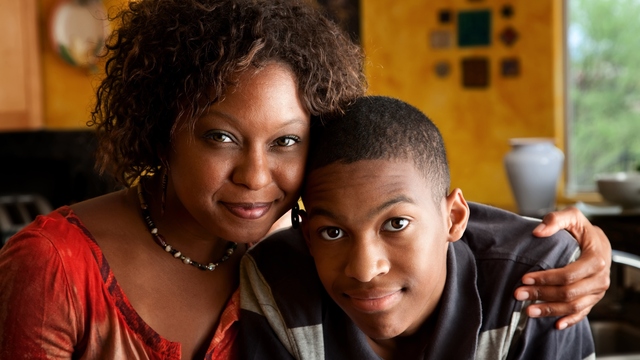
Adolescence can be difficult because, your child is going through rapid physical changes as well as emotional ups and downs. Young people aren’t always sure where they fit, and they are still struggling to work it out. Adolescence can also be a time when peer influence and relationship can cause you and your child some stress.
During this time your family is still a secure emotional base where your child feels loved and accepted no matter what’s going on in the rest of his life. Your family can build and support your child’s confidence, self-esteem, optimism and identity. When your family sets rules, boundaries and standard of behavior, you give your child a sense of consistency and predictability. And believe it or not, your life experience and knowledge can really be useful to your child, she just might not always want you to know that.
· Supportive and close family relationship protect your child from risky behavior like alcohol and other drugs, and problems like depression. Your support and interest in what your child is doing at school can boost his desire to do well academically too.
· Strong family relationship can go a on way toward helping our child grow into a well-adjusted, considerate and caring adult. Knowing what your child is doing and being available to her, can mean fewer teenage behavior problems.
Being available could be as much as just being in the kitchen when your child is in her bedroom, so she knows she can come and talk to you if she wants to. Teenagers benefit from knowing that support is available, even though they might not be using it.
Tips on building a positive family relationship with your teen
Ordinarily, everyday things that families do together, can help build and sustain strong relationship with your teen. These are tips that can help you build a strong relationship with your teen:
· Celebrate your child’s accomplishment, share his disappointment and show interest in his hobbies. You don’t have to make a big deal out of this. Sometimes it’s just a matter of showing up to watch your child play his music or giving him a lift to extra curriculum activities.
· Regular family meal are a good chance for everyone to chat about their day, or about an interesting stuff that is going on or coming up. If you encourage everyone to have a say, no one will feel they’re being put to on the spot to talk. Also many families find it more enjoyable, when they have their meals without the television set. You should also involve your teen in the discussion
· Try to set time for family outing, you could all take turns choose activities. A relaxing holiday or weekends together as a family, this can also help you build a closer relationship with your teen.
· Allow your child attend Sunday school in the church, let them have their own bible and notebook or jotter. Makes sure you ask them at the end of every service, what they were been thought during the service and what they gain at the end of every teaching. If you need to expatiate on the topic, don’t hesitate to do that. By doing this your teen will be morally guided.
· Family tradition and routine and rituals can help you and your child set aside regular dates and special time together. For example, you might have a movies night together, a favourite meal or cooking session on particular night, a family games, afternoon or an evening walk together.
· Always be the first to ask him about his assignment before his lesson teacher, with this you will build that love you need from your child. Try to know his friends name, tell him to invite some of his friends over at weekends, so that you will know the kinds of friends he his keeping. If they will be of good or bad influence on him, with that you will be able to advise him the kind of friends he move with.
· Try to be your child’s best friend, let your teen have confidence in you, so that she will not be afraid of you or discuss anything with you. With this she will be able to discuss anything that is bugging her mind with you. Don’t let her friends be the first she will share the problem with, because they might give her a wrong advise that might lead her astray.
· Don’t scold your child to extend of building fear inside him. Anytime he make a mistake, call him and tell him what he did was wrong, and tell him the consequences in a friendly manner. Then later explain to him how to do that thing next time, so that will not make such mistake again. With this he will know that, no matter what mistakes he makes, you will always be there for him and you will still show him love.
